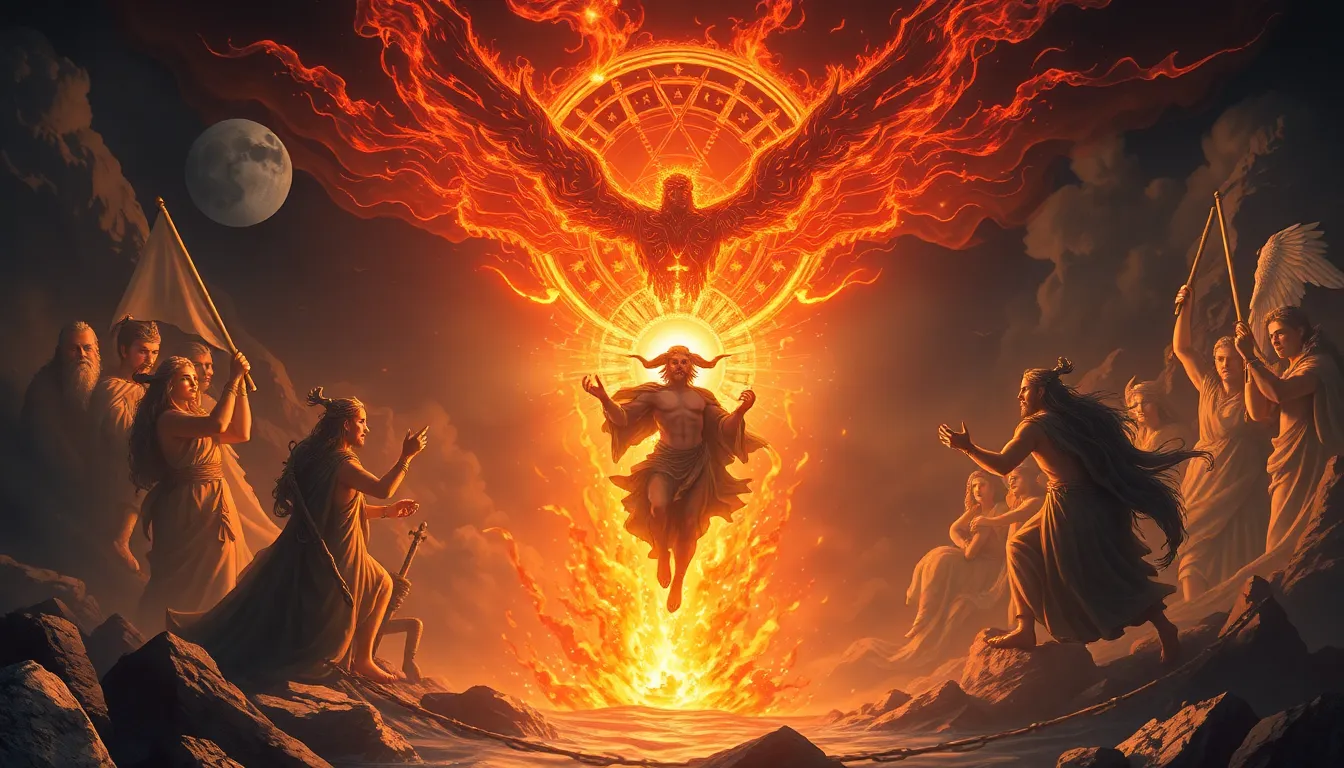The Role of Divine Retribution in the Stories of the Olympian Gods
I. Introduction
Divine retribution, often referred to as the concept of justice delivered by the gods, plays a fundamental role in Greek mythology. It symbolizes the inevitable consequences that follow wrongdoing, serving as a reminder of the moral order upheld by divine beings. The Olympian gods, led by Zeus, are central figures in these myths, embodying the complexities of justice, power, and morality.
This article aims to explore the theme of retribution in the narratives of the Olympian gods, examining how their actions reflect the principles of justice and morality that governed ancient Greek society.
II. The Concept of Divine Justice in Greek Mythology
In Greek mythology, justice is closely intertwined with the behavior of the gods and mortals alike. The gods are seen as arbiters of morality, rewarding virtue and punishing vice.
- Explanation of justice and morality among the gods: The gods embody various aspects of life and society, each with their own moral codes, often leading to conflicting interpretations of justice.
- The balance between hubris and punishment: Hubris, or excessive pride, often leads mortals to challenge the gods, resulting in inevitable punishment as a demonstration of divine authority.
- The role of fate and free will in divine retribution: While mortals possess free will, their choices often lead to preordained fates orchestrated by the gods, highlighting the tension between autonomy and divine control.
III. Case Study: Zeus as the Enforcer of Divine Retribution
As the king of the gods, Zeus wields significant power over law and order in the cosmos. His authority establishes the foundation for divine justice, as he enforces consequences for both mortals and other deities.
- Zeus’s authority over law and order: Zeus is often portrayed as a figure who maintains balance and punishes transgressions against divine and moral laws.
- Examples of Zeus’s punishments:
- Prometheus: Zeus punished Prometheus for stealing fire and giving it to humanity, chaining him to a rock where an eagle would eat his liver daily.
- Sodom and Gomorrah: The destruction of these cities is attributed to their inhabitants’ immoral actions, with Zeus sending divine retribution through fire and brimstone.
- The duality of Zeus’s nature: Zeus embodies both protector and punisher, as he can be merciful to those who show humility while also delivering severe punishments to those who defy him.
IV. The Role of Other Olympian Gods in Enacting Retribution
Other Olympian gods also play crucial roles in the enactment of divine retribution, each bringing their unique perspectives and methods of punishment.
- Hera’s vengeful actions against Zeus’s lovers: Hera, the queen of the gods, often exacts revenge on Zeus’s many lovers and their offspring, demonstrating the consequences of infidelity.
- Athena’s role in punishing hubris:
- Arachne: Arachne, a mortal weaver, challenged Athena’s skills and was transformed into a spider for her hubris, serving as a cautionary tale against pride.
- Poseidon’s retribution against mortals:
- Odysseus: Poseidon sought revenge against Odysseus for blinding his son, Polyphemus, causing endless trials during Odysseus’s journey home.
V. Symbolism of Mythological Punishments
The punishments meted out by the gods often carry deep symbolic meanings, reflecting broader moral lessons and cultural values.
- Understanding the symbolic meanings of different punishments: Each punishment serves as a metaphor for moral failings, societal norms, and the consequences of defying the divine.
- The moral lessons imparted through these stories: These myths offer cautionary tales about the importance of humility, respect for the gods, and the consequences of immoral behavior.
- The cultural significance of retribution in ancient Greek society: Retribution underscores the belief in a moral universe where justice is ultimately served, reinforcing societal values and norms.
VI. Divine Retribution and Human Suffering
Divine punishment often results in significant suffering for mortals, shaping their lives and destinies.
- The impact of divine punishment on mortal lives: Mortals who incur the wrath of the gods often face devastating consequences, leading to themes of tragedy and suffering.
- Exploration of tragic heroes and their downfalls: Many heroes, such as Achilles and Oedipus, experience downfall as a result of divine retribution, illustrating the fragility of human fate.
- The theme of suffering as a pathway to redemption: Suffering can lead to growth and understanding, as seen in characters who learn from their mistakes and seek forgiveness.
VII. Modern Interpretations and Relevance
The theme of divine retribution continues to resonate in contemporary literature and media, reflecting timeless human concerns about justice and morality.
- How the theme of divine retribution resonates in contemporary literature: Many modern narratives echo the ancient myths, exploring themes of justice, punishment, and moral consequences.
- Comparisons with other cultural narratives on justice: Similar themes of divine retribution can be found in other cultures, such as Norse and Hindu mythologies, reflecting universal concerns about morality.
- The enduring legacy of the Olympian gods in modern society: The stories of the Olympian gods continue to influence art, literature, and philosophy, reminding us of the complexities of human nature and morality.
VIII. Conclusion
Divine retribution is a significant theme in the myths of the Olympian gods, illustrating the interplay between justice, morality, and human experience. Through various narratives, we learn about the consequences of hubris, the importance of humility, and the moral order upheld by the divine.
As we reflect on these ancient stories, we recognize their relevance in today’s society, where themes of justice and punishment continue to provoke thought and inspire reflection on our own moral choices.




